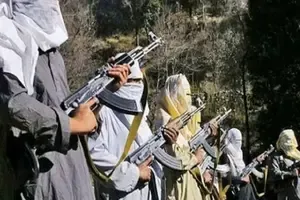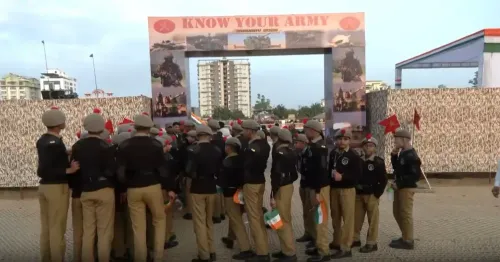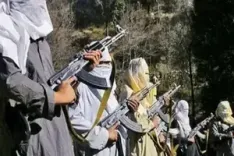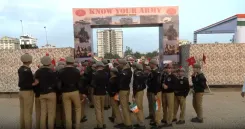Is Terror Under a New Banner? Khalistani Terrorists Go Global with ISI and Cartel Support
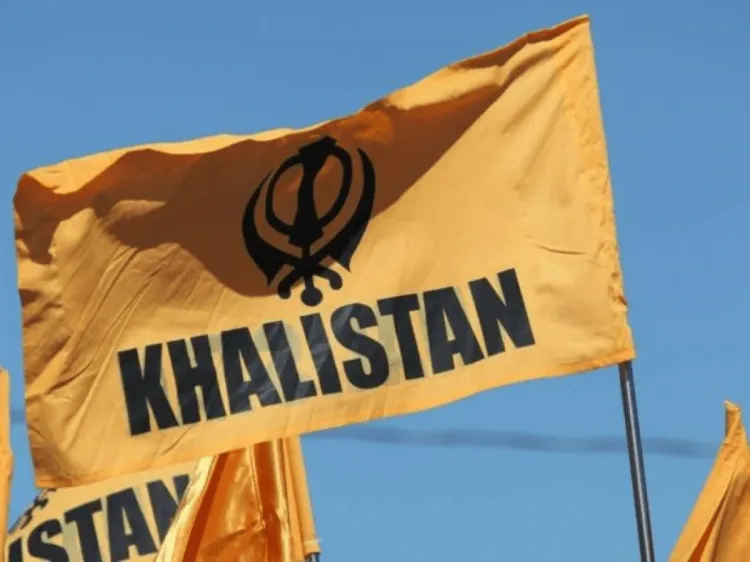
Synopsis
Key Takeaways
- Khalistani terrorists are expanding their operations globally.
- They are receiving support from ISI and international drug cartels.
- Countries like Canada and the UK are urged to take action.
- Increased activities have been noted in Amritsar and Jalandhar.
- The ISI's involvement raises serious security concerns for India.
New Delhi, Aug 5 (NationPress) India has consistently alerted nations like Canada and the UK regarding the Khalistan terror threat. Both of these countries have shown reluctance to take decisive action against the Khalistani terrorists operating within their borders.
This issue is also evident in the United States, where these groups exploit the pretext of free speech. Although they claim to advocate for a separate Khalistan nation from India, in truth, many of these individuals are infamous gangsters, terrorists, arms traffickers, and drug lords.
Historically, they functioned through their own networks in these foreign territories. The Khalistani terrorists also maintain a substantial network of gangsters in India, engaging in contract killings, acts of terror, and drug trafficking.
Recently, however, these elements have forged alliances with Latin American drug cartels and a Chinese network. These connections were unveiled when the US Drug Enforcement Agency (DEA) reported a Khalistan link to both Chinese and Latin American cartels.
The dismantling of these networks, which also have ties to the ISI, led to the detention of an Indian-Canadian gangster named Opinder Singh. There has been no established connection between the Chinese factions and Khalistani terrorists thus far.
Nevertheless, security agencies suspect that China may have begun to endorse these elements at the behest of the ISI. Seeking Chinese backing, the ISI enlisted Gurpatwant Singh Pannun, the leader of the banned group Sikhs for Justice (SFJ).
Intelligence reports suggest that the relationship between Chinese entities and Khalistani elements may have initiated during the heightened tensions along the Line of Actual Control (LAC) between India and China. During this period, Pannun wrote to Chinese President Xi Jinping, justifying China's stance against India.
"We view China's military response to India as legitimate and necessary for safeguarding its territorial integrity according to international law," he wrote.
He urged President Xi to advocate for the rights of Sikhs to self-determination in the UN Security Council. In 2019, he also alerted the Chinese ambassador to Pakistan about potential attacks by Indian agencies on the Chinese consulate there.
China seemed to support Pannun when an individual named Nikhil Gupta was detained by US authorities, claiming he had been compensated by Indian agencies to eliminate the SFJ leader. India dismissed these allegations and rebuffed China's claims.
These developments raise alarms as the ISI consolidates resources to advance the Khalistan movement. To propel this agenda, the ISI has united gangsters and narcotics traffickers, aiming for larger financial support through international cartel collaborations.
While Indian authorities remain vigilant, preventing the movement from gaining traction domestically, concerns linger regarding its international associations. The Punjab police convened a comprehensive meeting with field officers, presenting insights into the escalating situation.
Attention was drawn to the uptick in activities in the border regions of Amritsar and Jalandhar, indicating a more aggressive push by the ISI to promote the Khalistan agenda.


